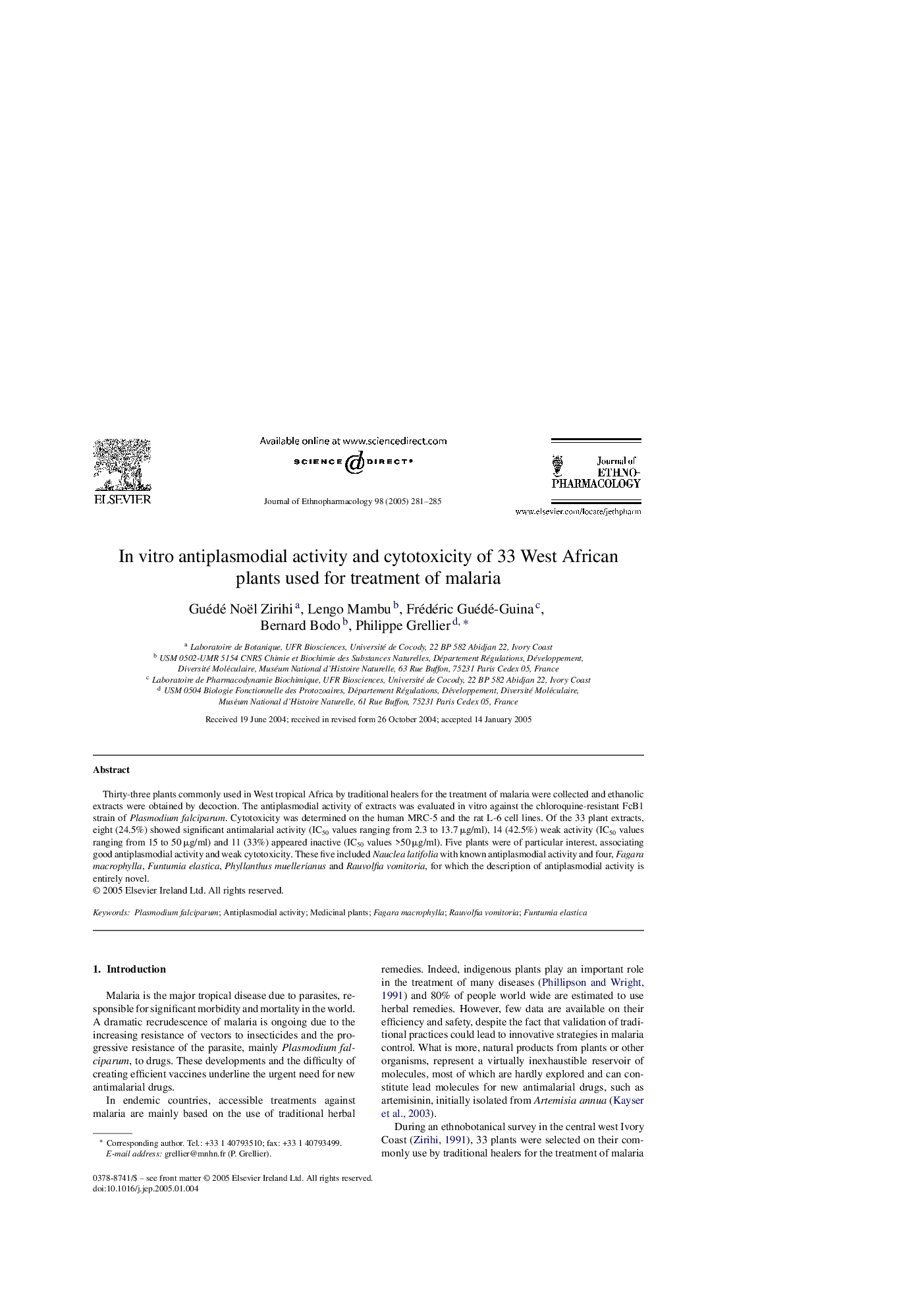| Article ID | Journal | Published Year | Pages | File Type |
|---|---|---|---|---|
| 9009801 | Journal of Ethnopharmacology | 2005 | 5 Pages |
Abstract
Thirty-three plants commonly used in West tropical Africa by traditional healers for the treatment of malaria were collected and ethanolic extracts were obtained by decoction. The antiplasmodial activity of extracts was evaluated in vitro against the chloroquine-resistant FcB1 strain of Plasmodium falciparum. Cytotoxicity was determined on the human MRC-5 and the rat L-6 cell lines. Of the 33 plant extracts, eight (24.5%) showed significant antimalarial activity (IC50 values ranging from 2.3 to 13.7 μg/ml), 14 (42.5%) weak activity (IC50 values ranging from 15 to 50 μg/ml) and 11 (33%) appeared inactive (IC50 values >50 μg/ml). Five plants were of particular interest, associating good antiplasmodial activity and weak cytotoxicity. These five included Nauclea latifolia with known antiplasmodial activity and four, Fagara macrophylla, Funtumia elastica, Phyllanthus muellerianus and Rauvolfia vomitoria, for which the description of antiplasmodial activity is entirely novel.
Related Topics
Health Sciences
Pharmacology, Toxicology and Pharmaceutical Science
Pharmacology
Authors
Guédé Noël Zirihi, Lengo Mambu, Frédéric Guédé-Guina, Bernard Bodo, Philippe Grellier,
